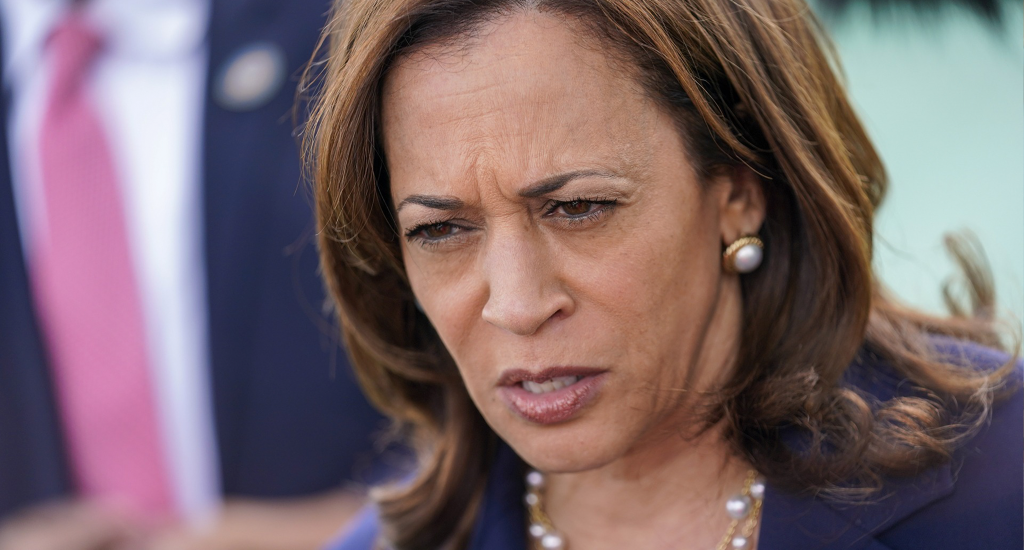Key Factors Behind Kamala Harris's 2024 Election Defeat
- Adeel Arman
- November 6, 2024
- 2:18 pm
- 46
- Current Affairs

The 2024 presidential race was undoubtedly a complex one, with various candidates presenting diverse views and approaches to an electorate deeply divided on core issues. For Vice President Kamala Harris, whose candidacy marked a significant moment in history as the first woman of color to be nominated for president by a major party, the campaign journey faced unique challenges. Here, we explore some pivotal factors, particularly campaign statements and policy stances, that may have contributed to her falling short in securing the presidency.
Key Policy Stances and Voter Perception
Throughout her campaign, Harris took strong positions on progressive issues, including climate action, healthcare reform, and police reform. While these stances aligned closely with Democratic values, they may have alienated moderate and independent voters concerned about practical implications. Her support for comprehensive police reform, for instance, resonated well with a significant portion of the Democratic base. However, critics argued that her message was perceived as leaning too far left, potentially distancing voters who prioritize public safety in more traditional ways.
Similarly, on climate policy, her commitment to stringent environmental reforms appealed to progressive voters but raised concerns about its economic impact on industries and rural communities that rely heavily on traditional energy sources. This concern, particularly in key swing states, may have affected her campaign’s traction among blue-collar workers.
Campaign Messaging and the Nation’s Economic Concerns
One of the primary concerns facing the nation was the state of the economy, especially with inflation, housing costs, and employment stability being critical issues for millions. While Harris advocated for long-term, equity-focused solutions, her statements on the economy and inflation at times lacked specifics that voters sought for immediate relief.
The focus on equity and social justice initiatives was seen as admirable by supporters but was sometimes perceived as a lower priority by voters seeking clear, direct economic solutions. Her campaign statements on these issues seemed to resonate less in areas where immediate economic concerns were prioritized over social policies.
Media Narratives and the Public’s Perception
Harris’s campaign was consistently in the media spotlight, where her words and statements were often dissected and analyzed. Public perception, shaped heavily by media portrayal, was impacted by how certain statements were covered. A few instances where she appeared dismissive or overly scripted led to criticisms of her authenticity. Her message was also sometimes clouded by media attention on perceived gaffes or missteps that overshadowed policy discussions.
This was particularly challenging for Harris as, historically, female and minority candidates often face a heightened level of scrutiny compared to their counterparts. These dynamics likely intensified the impact of media-driven narratives that cast doubt on her relatability and alignment with everyday concerns.
Voter Fatigue and the Challenge of Distinguishing from the Previous Administration
Coming off her term as Vice President, Harris’s platform was often seen as an extension of the current administration’s policies. While continuity can be an asset, her campaign faced a degree of voter fatigue toward the administration’s policies, especially on issues where the public felt progress had stalled.
Statements she made in support of ongoing strategies—whether on foreign policy, immigration, or economic resilience—often failed to inspire the sense of change and momentum that voters seemed to be seeking in 2024. Her role as a central figure in the administration likely made it difficult to differentiate her vision from the status quo, which some voters may have desired to shift.
Identity Politics and Voter Bias
As the first Black and South Asian woman to run for the presidency, Harris’s candidacy was historic, but it also came with unique challenges. Though progress has been made, bias—both subtle and overt—still exists in U.S. politics. Harris’s statements on identity and inclusivity sometimes met with resistance or backlash from those who viewed her focus as overly progressive or identity-driven.
Additionally, polling has shown that women, and particularly women of color, often face greater scrutiny on policies and character, creating a higher bar for establishing trust and relatability with certain demographics. This aspect of her campaign likely added complexity, as she navigated the dual goals of championing inclusivity while attempting to appeal to a broad and diverse voter base.
Comparative Campaign Strategies and Messaging Consistency
One area where Harris’s campaign may have faltered was in comparison to the clearer messaging strategies used by her opponents. Her competitors’ campaign statements often employed sharper rhetoric and a more unifying approach that resonated well in key states.
In the battleground areas that determine presidential outcomes, opponents utilized direct and relatable messaging that clearly outlined plans for immediate change. By contrast, Harris’s statements sometimes leaned into broader policy ideals, which may have seemed less concrete or actionable to undecided voters. This comparative difference in campaign strategy could have weakened her appeal among swing voters, particularly those seeking clarity on specific actions.
Kamala Harris’s 2024 presidential campaign represented a historic moment in American politics, yet the challenges she faced on various fronts illustrate the complex landscape of modern elections. From campaign messaging and policy priorities to the interplay of media narratives and voter sentiment, the factors that shaped her outcome highlight the significant hurdles for any candidate aiming to bridge divides in an increasingly polarized nation. Harris’s legacy, however, remains impactful as a leader who broke barriers and furthered the representation of diverse voices on the national stage, leaving an indelible mark on future political generations.



